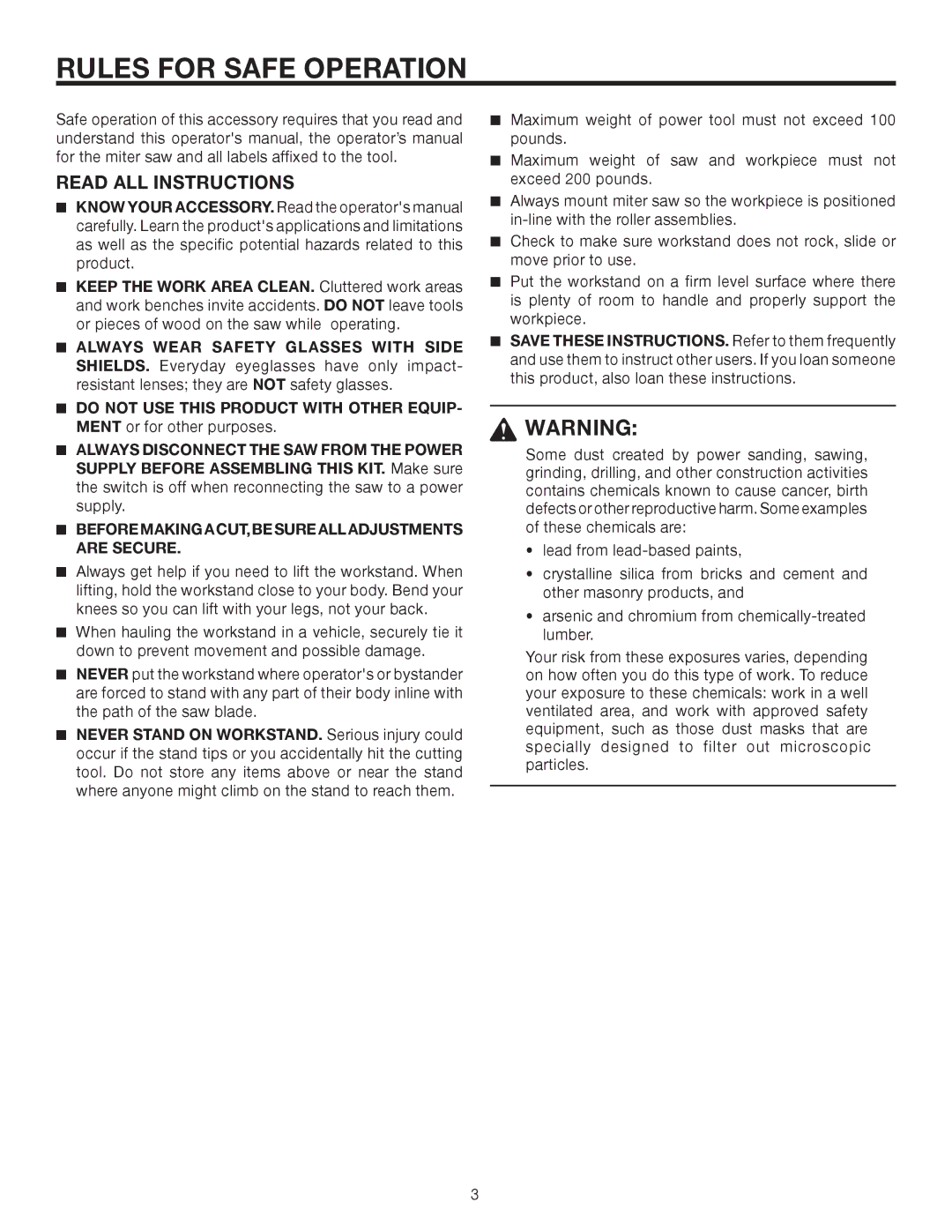
RULES FOR SAFE OPERATION
Safe operation of this accessory requires that you read and understand this operator's manual, the operator’s manual for the miter saw and all labels affixed to the tool.
READ ALL INSTRUCTIONS
nKNOW YOUR ACCESSORY. Read the operator's manual carefully. Learn the product's applications and limitations as well as the specific potential hazards related to this product.
nKEEP THE WORK AREA CLEAN. Cluttered work areas and work benches invite accidents. DO NOT leave tools or pieces of wood on the saw while operating.
nALWAYS WEAR SAFETY GLASSES WITH SIDE SHIELDS. Everyday eyeglasses have only impact- resistant lenses; they are NOT safety glasses.
nDO NOT USE THIS PRODUCT WITH OTHER EQUIP- MENT or for other purposes.
nALWAYS DISCONNECT THE SAW FROM THE POWER SUPPLY BEFORE ASSEMBLING THIS KIT. Make sure the switch is off when reconnecting the saw to a power supply.
nBEFOREMAKINGACUT,BESUREALLADJUSTMENTS ARE SECURE.
nAlways get help if you need to lift the workstand. When lifting, hold the workstand close to your body. Bend your knees so you can lift with your legs, not your back.
nWhen hauling the workstand in a vehicle, securely tie it down to prevent movement and possible damage.
nNEVER put the workstand where operator's or bystander are forced to stand with any part of their body inline with the path of the saw blade.
nNEVER STAND ON WORKSTAND. Serious injury could occur if the stand tips or you accidentally hit the cutting tool. Do not store any items above or near the stand where anyone might climb on the stand to reach them.
nMaximum weight of power tool must not exceed 100 pounds.
nMaximum weight of saw and workpiece must not exceed 200 pounds.
nAlways mount miter saw so the workpiece is positioned
nCheck to make sure workstand does not rock, slide or move prior to use.
nPut the workstand on a firm level surface where there is plenty of room to handle and properly support the workpiece.
nSAVE THESE INSTRUCTIONS. Refer to them frequently and use them to instruct other users. If you loan someone this product, also loan these instructions.
![]() WARNING:
WARNING:
Some dust created by power sanding, sawing, grinding, drilling, and other construction activities contains chemicals known to cause cancer, birth defects or other reproductive harm. Some examples of these chemicals are:
•lead from
•crystalline silica from bricks and cement and other masonry products, and
•arsenic and chromium from
Your risk from these exposures varies, depending on how often you do this type of work. To reduce your exposure to these chemicals: work in a well ventilated area, and work with approved safety equipment, such as those dust masks that are specially designed to filter out microscopic particles.
3
